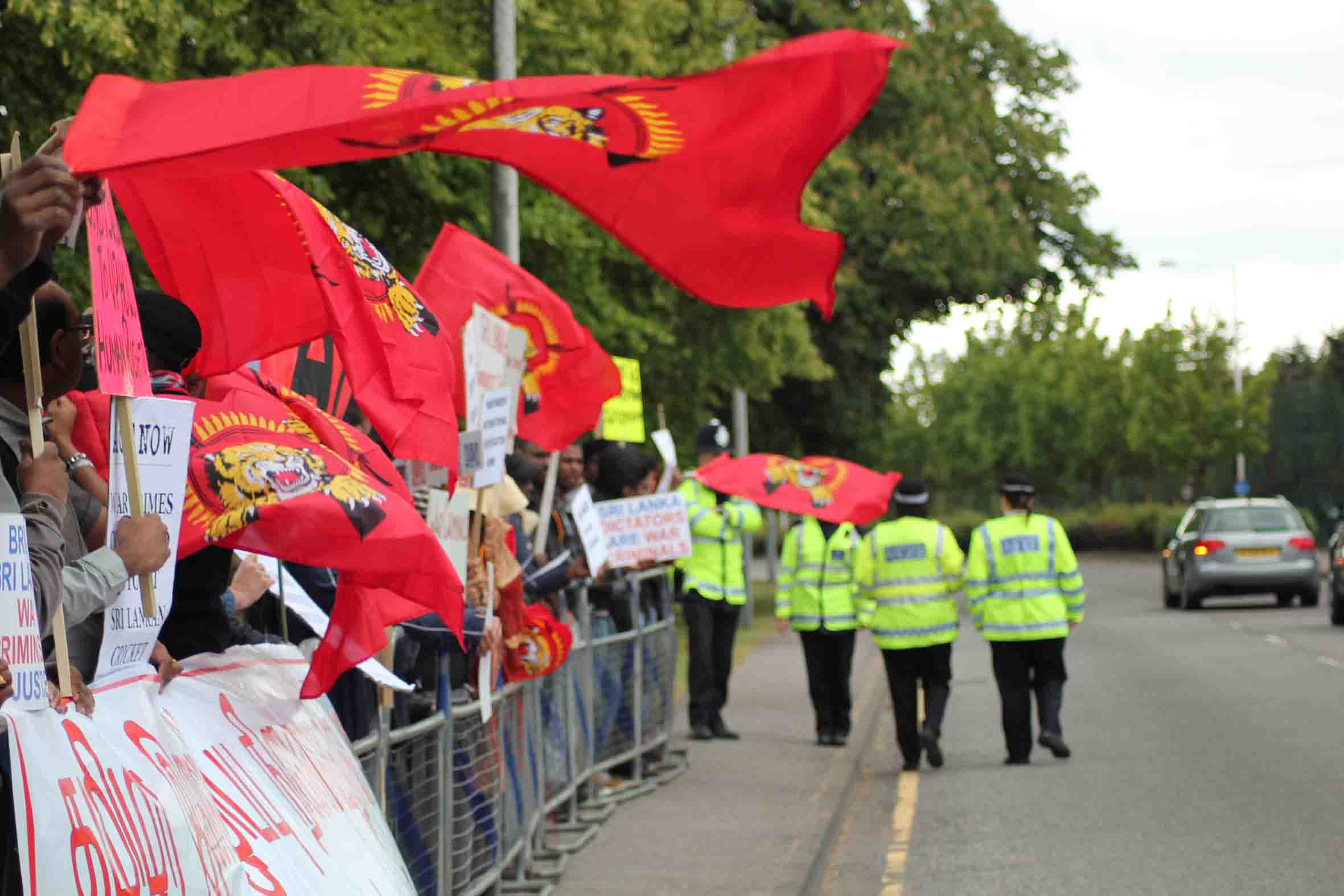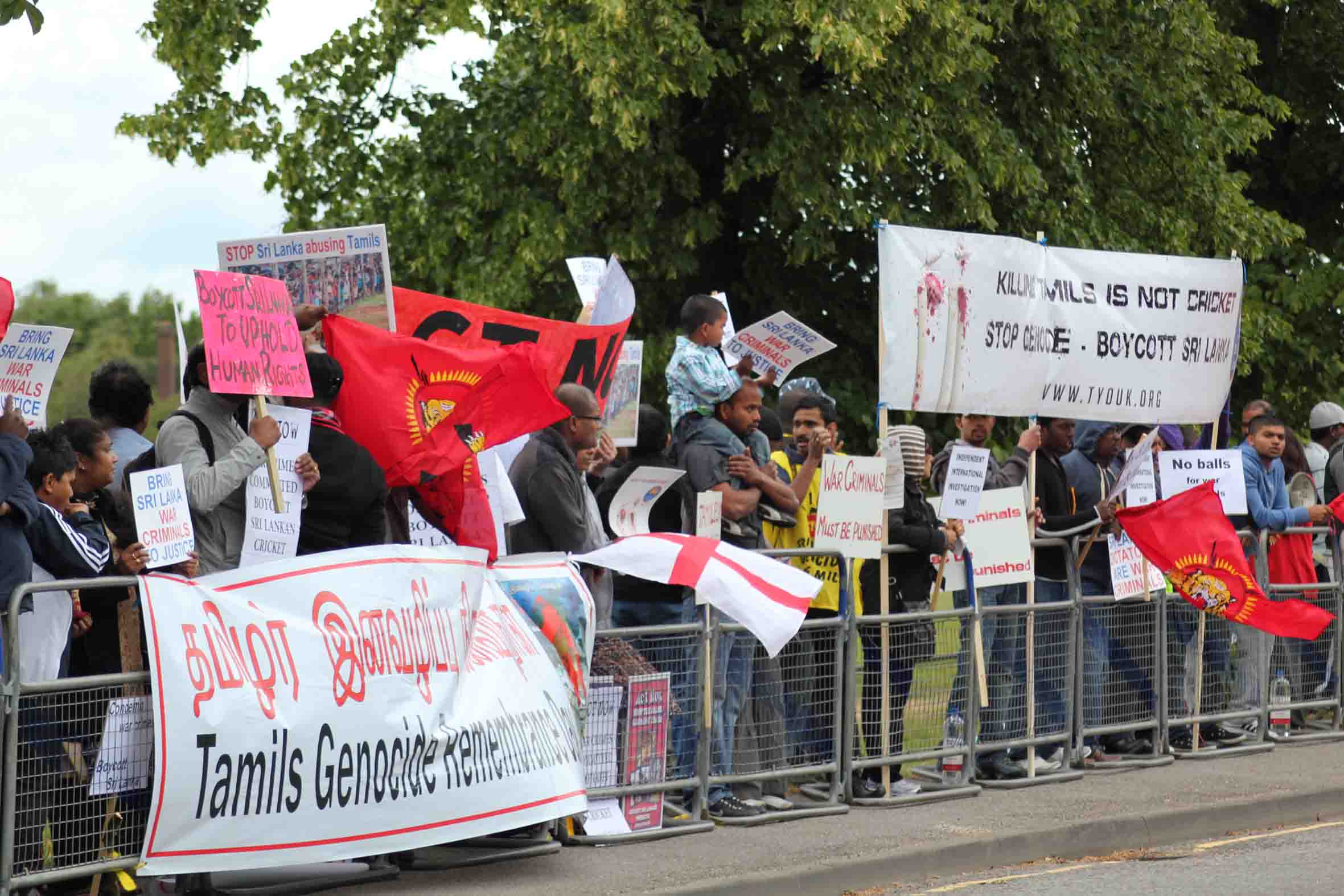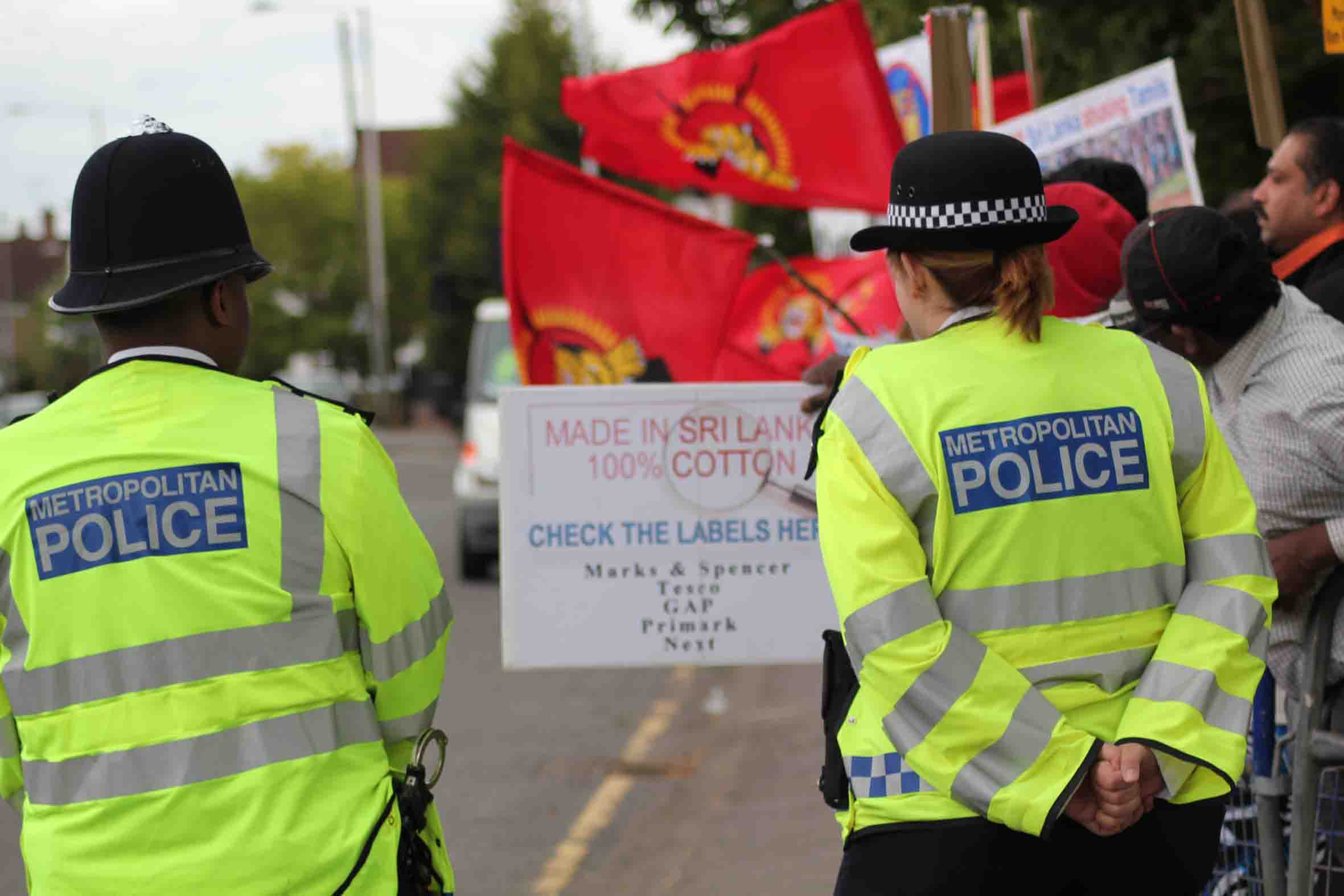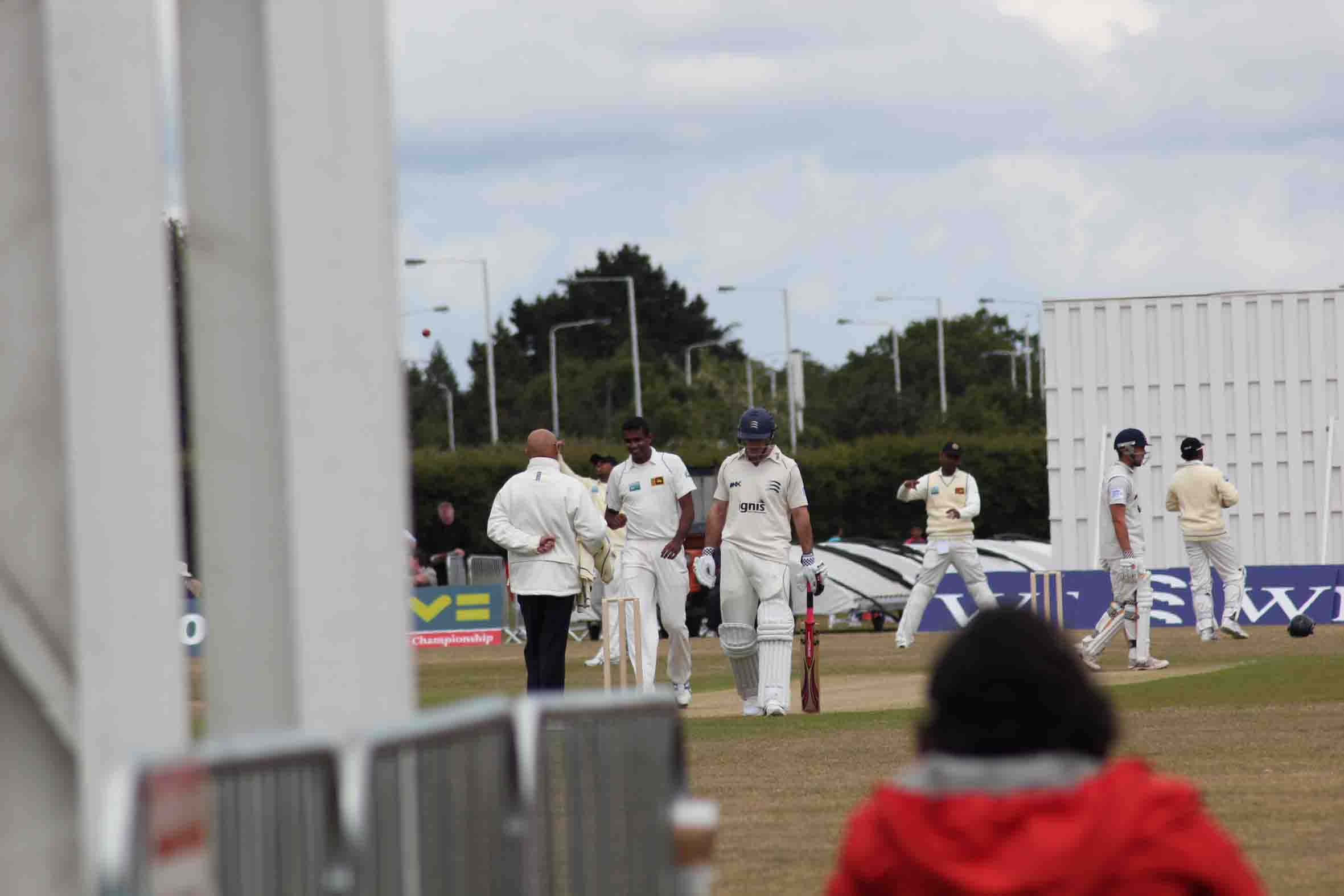 |
Sri Lanka’s cricket team began their tour of England Saturday with a match against Middlesex that was accompanied by the din of a lively protest at the Uxbridge ground by Tamil expatriates and others.
A changing group of several dozen protestors holding banners, placards, and Tamil Eelam flags chanted slogans through megaphones and played drums, as some passing cars blew their horns in support.
 |
 |
 |
 |
 |
The protestors took up position, in agreement with police, along the main road, but close enough to the edge of the grounds to watch England, captained by Andrew Strauss, bat against Sri Lanka.
The chanting began at 10am, before the match started, drawing the curiosity of arriving spectators, and ended at 4pm, to stay well within the time period agreed beforehand with the police.
Amongst the chants led by activists with megaphones were: “Boycott Sri Lanka cricket,” “Not to Zimbabwe, No to Sri Lanka”, and “War crimes, war crimes - say no to Sri Lanka”. The chants were interspaced by drums, including booming miruthangams.
Two large banners stated “Killing Tamils is not cricket. Stop genocide. Boycott Sri Lanka” and “It is genocide. Boycott Sri Lanka”.
The enclosure set up by the police for protestors was located next to a busy road and the banners drew the attention of passing motorists, some of whom responded enthusiastically to another sign: ‘Horn for the Tamils’.
“We were a constant presence through the day’s play. [Today] has been an excellent opportunity to remind the cricket fans here about the despicable conduct of the Sri Lankan state,” said Thusiyan Nandakumar, a TYO spokesperson.
Sports reporters from several British media institutions came over to chat to protestors through the day. “It was no surprise to them why we were here today,” he said, as protestors packed up.
“We are calling for a boycott of Sri Lankan cricket until that government accepts the international community’s demands for accountability for the war crimes against the Tamil people,” he said.
With the sounds of the noisy protest carrying across the ground all day, a couple of spectators had objected to police, but the right to protest was being upheld, a reporter with one British daily told protestors.
A handful of relaxed police officers were on duty. Senior officers who visited occasionally to speak to protest leaders praised the orderly conduct of the protest, activists said.
“We intend to exploit the attention drawn by the Sri Lankan cricket tour to further build public awareness here [in UK] of the Colombo government’s conduct,” Nandakumar said, adding that further protests will take place outside later matches.
The TYO also collected signatures from passing members of the public for its ‘Boycott Sri Lanka’ postcard campaign. “We collected two hundred [signed] cards, and some people have also taken some for their friends and colleagues,” Nandakumar said.
